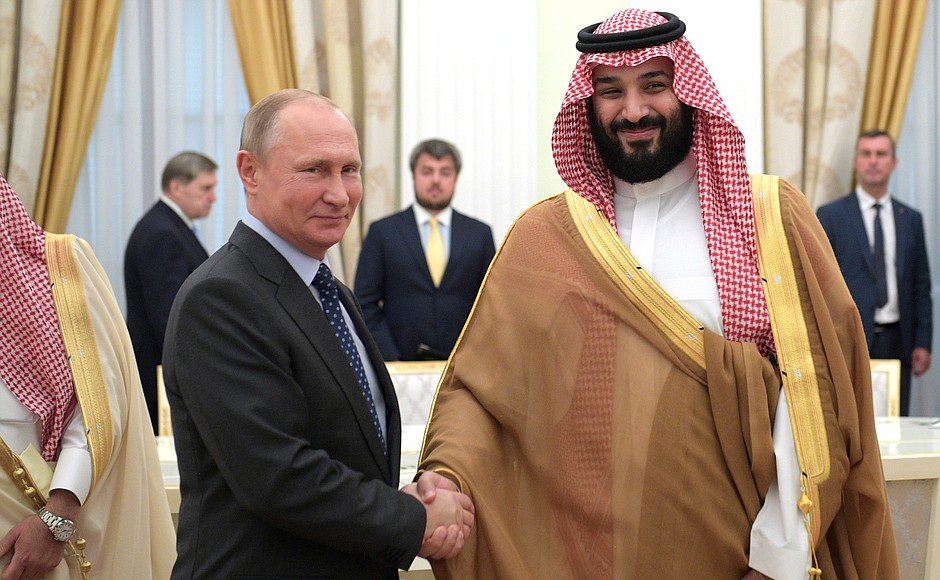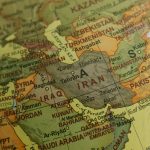A Mexican Standoff in the Middle of a Pandemic – Understanding the New Oil Price War

In the shadow of the corona pandemic, a second crisis seems to be unfolding as oil prices have been falling 45% since the start of the year. Plunging to an 18-year low, the slump in the price of crude oil has been partly attributed to a decrease in demand in the wake of the global virus outbreak. While the corona outbreak can undoubtedly be seen as the cause of the recent slump, the underlying reason has to be attributed to the constellation of the three main oil-producers on the global market. Although the relations between Saudi Arabia and Russia deteriorated as a consequence of the economic implications of the pandemic, the underlying issue is a conflict that has been a couple of years in the making.
The cooling of relations between Riyad and Moscow began last week when the Organization of the Petroleum Exporting Countries (OPEC) and Russia gathered in Vienna to discuss measures to cope with the slowdown of demand in light of the global crisis. To prevent a further decrease in oil prices due to the worldwide demand-shock Saudi Arabia, the de-facto leader of the organisation, proposed to decrease oil-production to ease the consequences of the crisis for the oil-producing countries. Contrary to the consensus in Vienna, the Russian Federation refused to agree to those cuts in productions, leading Riyadh to unilaterally increase its production to put pressure on the Russian side and effectively sending global oil-prices on a free fall. According to experts, this sudden drop is turning into a game of chicken between Saudi Arabia and Russia that could last for an unknown period and affect the world economy at large. Moreover, no compromise seems to be on the horizon as both parties seem to be prepared to go for the long game.
The abrupt worsening of the relations comes after three years of cooperation between the countries of OPEC and Russia. While the implications of the virus have played a role in the sudden end of this period, experts believe that the underlying cause is related to increasing tensions in the global market. Notably, these tensions were rising due to a third player that increased its market share over the last couple of years: the US.
Over the last five years, the US has emerged as a serious competitor in the oil market. Due to the accelerated growth of its cost-intensive but lucrative shale oil production Washington has entered the top three global oil producers. Notably, Russia’s reaction has to be evaluated in the broader context of this three-way battle since the rise of US shale oil particularly affected Russian oil production. While both Riyadh and Moscow are not benefiting from the growth of US oil, Russia is explicitly targeted by American sanctions harming its oil industry. These sanctions put in place after the crisis in Ukraine target the import of technology as well as the movement of capital relevant to Russian oil production.
In a bid to level the playing field, the Russian government could have used its gained savings of recent years stable prizes that resulted from its cooperation with OPEC and the current fall in prices to try to squeeze vulnerable US producers out of the market. Consequently, while Riyad’s actions may be amid at forcing Russia back to the negotiating table, they could be playing in the Kremlin’s hand and mostly hurt the US economy.
Although tensions are rising for US oil companies, Washington has not come up with a firm response yet. It is, however, possible that the Trump administration will end up using the prospect of increased sanctions on Russia as leverage towards Riyadh to persuade them to decrease production while putting most of the pressure on a further restricted Russian economy. Although this is only a possible scenario, it shows how fragile international cooperation can be and how state interest still takes centre stage in international relations.
In a time in which enhanced international cooperation is observed around the globe, the entanglement of political and economic interests leaves the three most potent oil-producing countries holding each other at gunpoint. While currently, the implications of the low oil price seem painful but bearable for the big players, they run the risk of running smaller oil-exporting countries like Iraq or Ecuador on the brink of collapse. In the context of a pandemic, this could have severe consequences for public health systems in these countries. While the virus may only be the cause and not the reason behind the current crash of the global oil market, it’s spread may likely benefit from its implications.
Further Readings:
https://edition.cnn.com/2020/03/10/business/russia-us-shale-oil-putin-opec/index.html
https://www.ft.com/content/88fa4174-6499-11ea-a6cd-df28cc3c6a68
https://www.ft.com/content/d63d0618-6928-11ea-800d-da70cff6e4d3
Featured Image:
Kremlin.ru (https://commons.wikimedia.org/wiki/File:Vladimir_Putin_and_Mohammed_bin_Salman.jpg), „Vladimir Putin and Mohammed bin Salman“, https://creativecommons.org/licenses/by/4.0/legalcode



